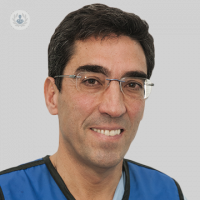Arrhythmia
Written by:¿What is an arrhythmia
?We called arrhythmia any alteration from the normal rhythm of the heart. & iquest;Since we classify ? We can classify them in a very simple way. First by where the arrhythmia originates. Then talk of ventricular arrhythmias when the problem is in the ventricles which are the main chambers of the heart and supraventricular arrhythmias when originating from the top in the atria. Also we are going to be classified into two types: bradyarrhythmias, which means that the heart is going slower than normal. If the heart beats between 60 and 100 beats per minute we can imagine what happens if you eg 30 beats per minute. And lasllamamos tachyarrhythmias when the heart beats much faster than normal. In this simple way we can get an idea of each arrhythmia.
¿What causes it?¿There are risk factors
?There are two basic types of causes, the damage we do to our heart, willingly or unwillingly, and as such have arterial hypertension, is something that overloads the heart and makes the heart have to end arrhythmias. Other causes of arrhythmias are if you have a heart attack if you have scar on the heart because they have operated;this can cause arrhythmias. And then the other part is that someone born with a congenital problem affecting the electricity from your heart. This is also the second leading cause of arrhythmias. That is, there are other causes congenital and acquired causes.
¿What treatments exist
?In the last few years this has changed a lot and are now able to cure many arrhythmias. What we have to do first is that there is some predisposing factor. If we have a cause, either a disease or that we smoke, or drink alcohol, or have very high voltage, then the first thing to do is to control these risk factors. Imagine, sometimes the heart is very slow because you take antiarrhythmic drugs, to remove drugs, this is normalized. When we are talking about fast arrhythmias or tachycardias, we must see that treatments can solve the problem. First we medication. Simply taking medication is sufficient. When this is not so with medication alone can not control the pace of the heart, we proceed to call for ablation procedures. In these procedures, a catheter is introduced like this in the heart and the areas that produce tachycardia burn. At the top of the heart have success almost in 99 % of cases and this has been a breakthrough. It is what is called radiofrequency ablation or other energies. But sometimes we can not prevent arrhythmias and arrhythmias are dangerous turn, which makes the heart go so fast that it is unable to expel blood and can cause death, sudden death we call. In these cases we sometimes use what we call implantable defibrillators. Are larger than pacemakers, are placed under the skin and are capable of when the heart has one of these tachycardias release an electric shock and make it back again to normal rhythm is sinus rhythm.




